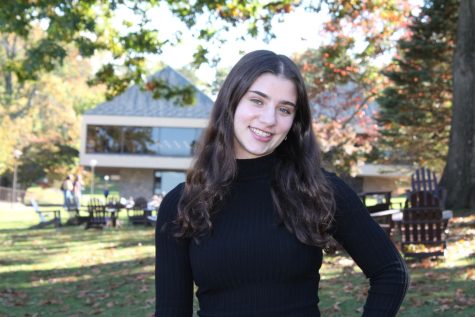Florida’s Parkland shooter lives to see another day
Nikolas Cruz has been found guilty of first degree murder.
November 4, 2022
Nikolas Cruz has been found guilty of first degree murder after carrying out the tragic shooting of seventeen innocent lives in the walls of his previous high school, Marjory Stoneman Douglas. The jury voted that Cruz should not be subjected to the death penalty, but rather spend the rest of his life in prison without the possibility of parole. This decision came as both a shock and a let down for the victims’ families, who were eagerly anticipating his execution.
Closing off a sixth month trial, the jury’s decision was not the outcome people expected, as Cruz carried out one of the most brutal shootings in American history on Feb. 14th, 2018. The prosecution on the case expressed to the jury that Cruz is a sociopath, and that the massacre was premeditated. There was evidence showing that he was searching for online information pertaining to the future massacre: such as the words “shooting” or “murder.” Detective Nick Masters, an electronic data analyst, read his searches aloud in the courtroom. He also mentioned that Cruz would leave comments behind on YouTube, expressing his desire to commit a crime.
The defense argued that he was diagnosed with mental illness, and ultimately the jury found that the mitigating circumstances of Cruz’s case outweighed the aggravating ones because of that factor. This means that although his actions were depraved, his culpability was lessened due to the fact he has irrational thoughts.
Cruz’s mental health issues came to light in Fort Lauderdale, Fla. on Aug. 16th, 2022, when a defense mental health expert listened to him talk about his plans on the outside of the prison walls. In alignment with his diagnosis of mental illness, Cruz expressed little remorse for the lives he took, which is originally why the death penalty was an option, but because of capital punishment’s decline in usage, three members of the jury decided that it wasn’t warranted. Florida, as one of the 24 states practicing the death penalty today, requires a unanimous decision of the jury before sentencing the defendant to the electric chair or lethal injection. Therefore, his life was spared.
The families of the Parkland victims had waited a grueling four years for the trial to commence, as it was postponed twice due to a juror threatening the defendant. Several parents of the victims were seen walking out of the courtroom in dismay when the jury read off the decisions. They did not see the reason for the death penalty even existing if it was not going to be used in a case like this.
The shooting instigated an anti-gun violence movement, which led to a national discussion on how gun control should be regulated. Rallies took place across the world, largely led by young people who are tired of seeing and hearing about the massacres. Students involved in this battle are growing impatient as they have yet to see much change surrounding the movement.
Adrien Blanc, a senior, maintains that the death penalty is more of a vengeful act, rather than one that will supply justice to the victims’ families. “I do believe that people who commit harmful acts should be punished accordingly, but I also feel that the goal of the prison system isn’t to kill people, but rather keep them off the streets,” he said.
While Cruz’s case is nothing to be taken lightly, Blanc trusts that the death penalty isn’t the answer that will bring peace to the families of the victims. “Unfortunately, at the end of the day, your child is still gone. There’s no way to forgive Cruz for that, but I don’t believe the death penalty would bring them serenity,” Blanc said.
Senior Eli West developed a new perspective on the case after hearing the victim’s families respond to the jury’s decision. “One of the statements made by a victim’s family member said that society has to re-examine who is a victim. This resonated with me. These teenagers suffered a domestic terrorist and yet everyone is talking about the shooter’s mental health,” West said. Although he believes this is true, he maintains that Cruz was doomed from the beginning of his life, making it a mitigating circumstance in the courtroom. “I don’t think the families will ever be at peace after this, and I don’t feel that the death penalty would have changed that for them,” he added.




